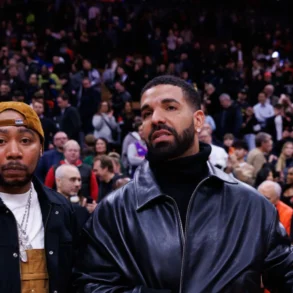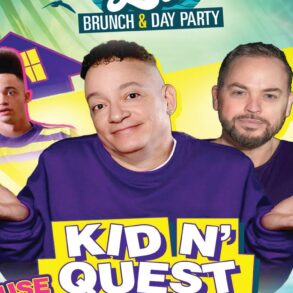Live on the MPC in Auckland and Wellington, New Zealand.
Selected Works is a weekly (usually) newsletter by the Te Whanganui-a-Tara, Aotearoa (Wellington, New Zealand) based freelance music journalist, broadcaster, copywriter and sometimes DJ Martyn Pepperell, aka Yours Truly. Most weeks, Selected Works consists of a recap of what I’ve been doing lately and some of what I’ve been listening to and reading, paired with film photographs I’ve taken + some bonuses. All of that said, sometimes it takes completely different forms.
This weekend, the Parisian beatmaker and DJ Arnaud Antoine Rene Bernard, better known as Onra, is playing two New Zealand shows in Auckland and Wellington at Nami and Meow, respectively, on Friday and Saturday night. The Auckland show is door sales only, but you can purchase presales for the Wellington show here. He’s here promoting his latest release, Nosthaigia, which he recorded while spending several years living in Thailand.
I was lucky enough to be invited to play a warm-up DJ set at the Wellington show. I’m thinking city-pop, street soul, and perhaps a bit of boogie, post-dubstep and 2000s vintage neo-soul beats. I’ll also be filling in on Radio Active 88.6 FM’s Late Late Breakfast Show in the afternoon that day (1-4 PM), so it’s gonna be a long afternoon and evening of music.
When I was getting everything ready for the shows earlier in the week, I remembered that I interviewed Onra for the long-defunct New Zealand-based music magazine Rip It Up in 2011. After spending some time digging through my archives, I managed to unearth the original Word doc. Since he’s playing down here this weekend, I figured it would be as good a time as any to share that particular piece of writing. It’s a Q&A, so it’s nothing flashy, but it does have some moments.
ONRA [Q&A Interview, originally published in Rip It Up, 2011]
Based in Paris, Arnaud Antoine Rene Bernard, better known as Onra, is one of the most exciting talents currently active in the international beat music scene. Since 2006, Onra has been calmly and consistently slipping out a constant stream of quality singles, EPs and albums. 2007’s Chinoiseries, a study in sample-based hip-hop reinterpretations of traditional Chinese and Vietnamese music, put him on the map.
Since then, through constant international touring and acclaimed pieces like last year’s Long Distance LP, Onra has been steadily cementing himself him as a key name in the scene. With Onra gearing up to drop Chinoiseries Pt 2 and make a series of performances in New Zealand, I hit him up on Skype. Topics of discussion included his association with our very own contemporary soulsters, Electric Wire Hustle, potentially making beats for The Weeknd, the art of crate digging, and his new live show.
Tell me about your association with our very own Electric Wire Hustle?
Well, I met them last year in Vienna. Then, I met them again in the Netherlands. Then again, in New York. We’ve both been on tour around the world. I’m good friends with them. Every time we meet, we have a lot of fun. I’m really looking forward to going to Wellington to spend some time with them.
What sort of connection do you feel with their music?
I guess we have a lot of influences in common, but besides that, our music is very different from one to another. I think we have the same kind of influence, especially, like, I know they are really inspired by J Dilla, especially on the rhythm patterns that he used. I can relate to that. Also, [their singer Mara TK], I would try to avoid any comparisons with Marvin Gaye, but he sounds like one of my favourite soul singers. So, of course, I think he has an amazing voice. The combination of their three talents is really working well I think.
Now, this isn’t the first time you’ve come to play in New Zealand, is it?
I’ve been there once before. I played in Auckland. That was my second or third live [MPC] set ever! It really was an experiment! One of the very first ones I’m sure.
Tell me about this video that has been going around the internet with The Weeknd singing over one of your instrumentals?
Well, I discovered it just as anyone else would have on YouTube. Some people on Twitter hit me up with The Weeknd’s song. They never asked me to use this beat. I think it was just for a demo or a mixtape. I don’t know what is happening with that. But we’ve been in touch since then. Actually, they just asked me for some beats yesterday. So we might see a collaboration soon? Maybe? Maybe something interesting is coming up?
From my understanding, you are a very sample-based, record-bin-digging producer. What is your take on sampling and crate digging in 2011?
I don’t know. That was just how I started and I am still making music with the same recipe as I started with. So, for me, we might be in 2011, we might be in 2031, I don’t really care. It is just how I make music. Crate digging is part of my process for making music. I’ve been inspired mainly by hip-hop producers who were doing the same thing. So, for me, it is natural. It is just the hip-hop way of making music. No matter what sort of music I make, it’s going to be hip-hop, because the way I make it is very hip-hop, if that makes sense? Which is going to the record store, buying vinyl, sampling them straight into the MPC and making music strictly with my MPC, which is a sampler/drum machine. So, for me, this is how it is supposed to be, I guess?
How critical was the crate digging you did in places like Vietnam to the development of your sound?
There is nothing special about crate digging in one country or another. It’s just about when I get lucky. Those Chinese records, I got them in Vietnam because there was still some left from forty, fifty years ago. But they didn’t really develop my sound or my skills. Maybe it pushed me to use a different kind of source because obviously, I never tried to sample Chinese music before that, but again, that was like five years ago, so it’s nothing new to me now. I will sample anything. There is no one style that I am really into these days. I love many different kinds of music. I buy everything. I’m not searching for some era or genre. I don’t care. I’m just looking for good music and good samples.
Are there any qualities you look for in samples?
No. Really, it is just spontaneous. I don’t think about all that. I just buy music, and I listen, and if I find something that is inspiring, I make something with it. I’m not trying to think too much about it.
You have a real classic vinyl crackle, hiss and pop sound to some of your beats, is that intentional?
When I sample Chinese records, I don’t really have a choice because the records are so dirty, you know? You can’t take it off. It’s too dirty. It’s not like when you buy a nice vinyl in a record store and it’s from the seventies and has a few crackles. It is really damaged. It’s not even nice to listen to because the sound is really fucked up. I don’t really care, though. It adds something to the beats because it sounds, I don’t know, dirty? I like it, and I think some listeners like it as well, even if it doesn’t sound radio-friendly. Somehow, it is different.
That is cool, building something new out of the ruins of the past.
Yes.
How does your live show work these days?
This last year and a half, I was touring with a keyboard player from Paris. So we have been working on the recent album Long Distance from last year. Since it came out, we’ve been touring around the world with the same album. I thought it was a good fit to have a synthesiser player play the keyboard on top of my beats. I thought it was a good mix. But for Australia and New Zealand, because flight tickets are so expensive, and for many other technical reasons, I have to go by myself. So, I am currently working on it. I was working on it before you called. I’m trying to reinvent my live show. I’m trying to do more stuff. I’m always trying to do more and more live to keep the crowd entertained. So that is what I am doing. I have the two MPCs, the effects machine, the synthesiser, talk box, and that is it.
FIN.
This post was originally published on this site be sure to check out more of their content.






